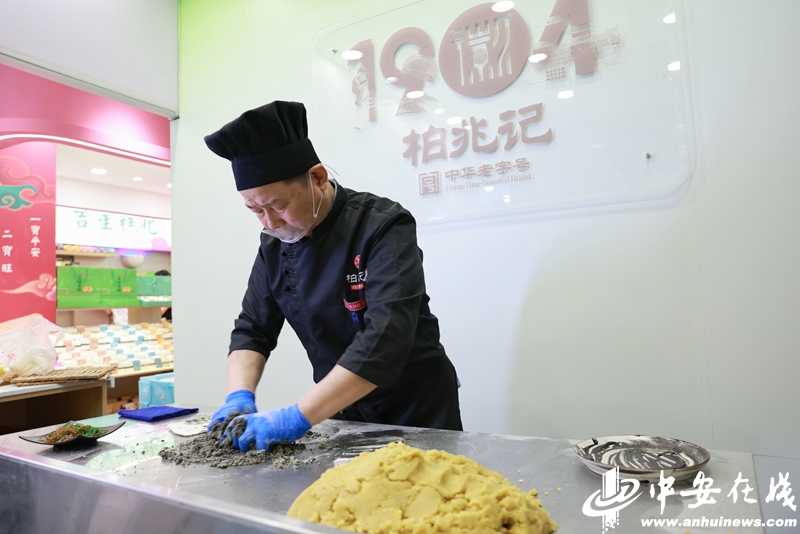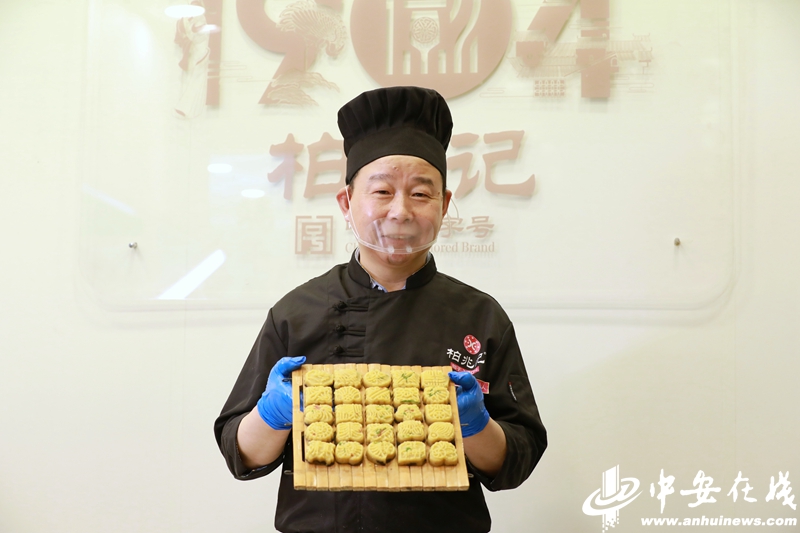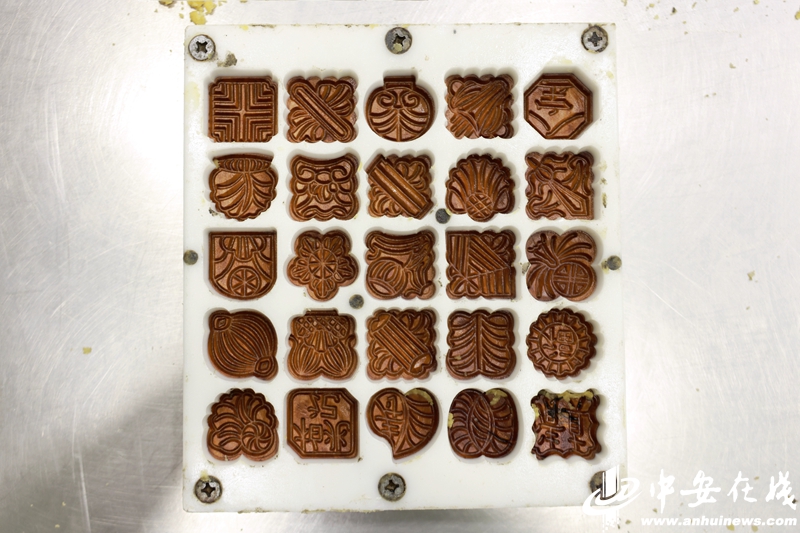|
a heap of green mung bean cooked flour and a heap of white wheat cooked flour, mixed with sesame oil, gradually take shape under the constant kneading of lu sijiu, an inheritor of intangible cultural heritage in halal pastry making, a successor of chinese pastry techniques, and a model worker of anhui province in 2022. 
on the afternoon of may 21, the century-old brand baizhaoji's first store in hefei, newly renovated, saw lu sijiu demonstrating the intangible cultural heritage technique of making daguan mung bean cake (also known as eight treasures mung bean cake), a national geographic indication product. 
as lu sijiu mixed sesame paste with the flour, a fragrance of mung beans blended with sesame filled the entire store. "it smells so good! are these freshly made ones for sale?" curious customers couldn’t help but ask. after completing the mixing process, lu sijiu took out maple molds and bamboo mats, sprinkled with green and red candied peels made from dried tangerine peel, layered with the mixed ingredients, sesame paste, and pure peeled mung bean powder. with skillful pressing, each piece of beautifully patterned mung bean cake was demoulded and formed. 
it is introduced that the stone-ground sesame paste used in baizhaoji's mung bean cakes is ground at temperatures below 60 degrees celsius. in this way, the sesame will not be burnt while grinding, so as to avoid bitterness, retain the original aroma, and do not need any essence to add. it is reported that baizhaoji is a renowned halal old shop, founded by bai zhaohe, established in the 30th year of guangxu reign in the qing dynasty, which is 1904 ad, making it over a century old.
source: anhuinews.com
|